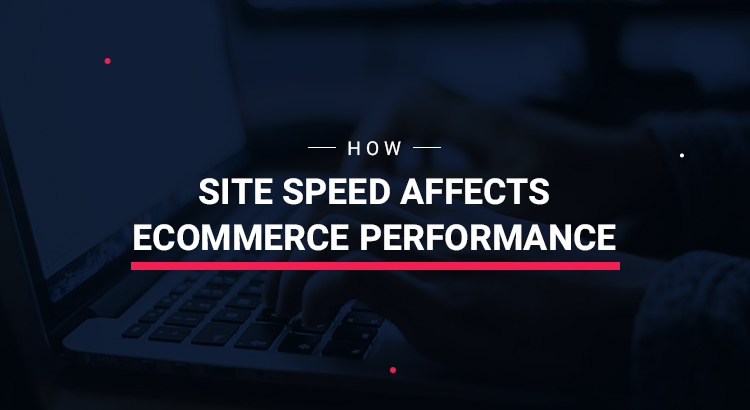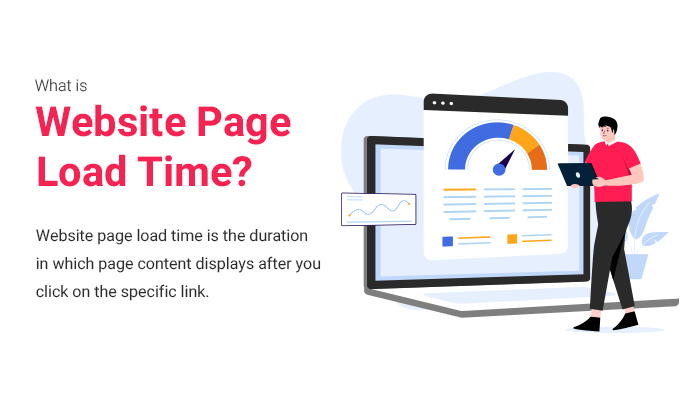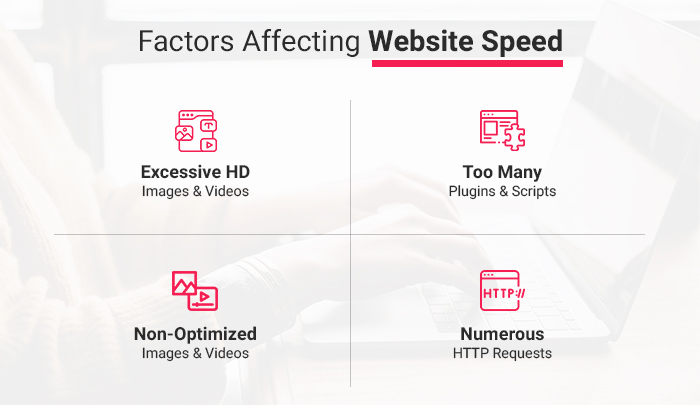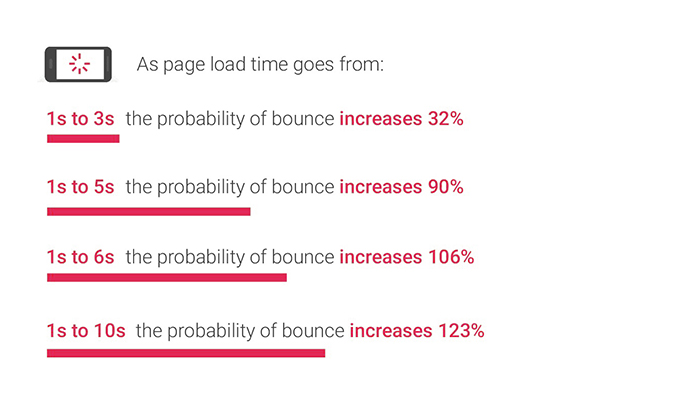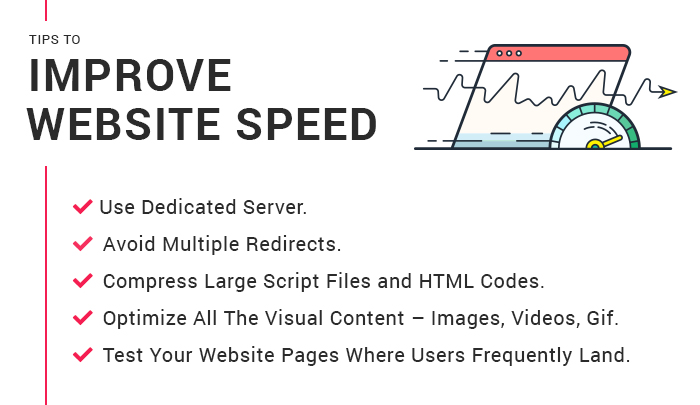Time is money, especially when we talk about e-commerce websites. Gone is the time when users sit patiently to let your website load at a slower pace.
Did you know 1 in 4 visitors will quickly abandon your website if it is consuming more time, i.e, 2 to 3 seconds to load the webpage today? The number is self-alarming about how quickly you can lose your potential customers.
In this blog, we will discuss why site speed is important and how it affects your e-commerce performance.
Why is site speed important?
Let’s say you visit an offline retail store. For how long will you wait if there is a huge rush over there? Only for a few minutes! When you cannot wait at an offline store, how can you expect visitors to wait for a slow-loading online store? When with just a single click, they can quickly reach a faster e-commerce website.
Your user cannot buy the product unless he sees it and can’t wait longer. The more your website takes time, the more the chances of an increased bounce rate. So, we can say that website speed directly influences the customer’s buying decisions. Thus speed is critical in the digital world.
How does slow website speed affect your e-commerce?
People over the internet want things fast. Since 2010, Google has included speed as a ranking factor in its algorithm. It has become a way to build your online business. Today more people use mobile devices to search, shop, and buy. So, Google started ranking by indexing based on content quality, page speed, and mobile sites.
-
Direct impact on sales
Internet users are impatient, and everyone needs quick results today. If your e-commerce website takes longer than usual, you can quickly lose your customers and sales. You only have 2 to 3 seconds to grab your users’ attention and increase your e-commerce store’s sales. The difference between a fast and slow navigating page is 3-4 seconds at maximum. But the loss that the retailers have to bear because of it is too high.
-
Impacts brand visibility
In the e-commerce business, you must know that Google penalizes websites with lower page loading speeds. This directly impacts your Google search ranking and, thus, your brand visibility. All your efforts and money you have put in to create your website will go in vain when your website does not get traffic and conversions because of poor brand visibility.
Although websites with faster loading speeds are ranked higher by Google, you should not compromise on the relevancy and quality of the content.
-
Impacts user experience
The first impression matters a lot in the digital world. Website speed plays a vital role in making or breaking your website. Faster websites are considered more reliable.
When a user lands on a slow-loading website, it leads to excessive frustration and delivers a poor user experience. The chances of them clicking out and visiting other websites are high then. Frequent bounce rate lets Google identify your website is not up to the mark for users and thus pushes you down in the search engine results.
-
Cart abandonment
You might be delivering exceptional quality in your offered products. But it will be a silly thing if you think your visitors will wait for your website to load at a slower pace.
Online shoppers get jitters on witnessing prolonged checkout pages. They react in two ways. Firstly, they would leave the website while cancelling the transaction. Secondly, the applicant might decide never to return to the site. It would ultimately lead to the abandonment of the cart and transaction.
-
Short sessions
Sessions mean the number of visits to your websites; it can be from repeated or new visitors. If there are few visits to your websites, you will have few sessions. Slow website speed is the main reason behind it.
If the user returns to your website fewer times, you lose the opportunity to introduce them to the new products. Thus you end up with fewer conversions. It means that your site not only lost a customer, but you also have driven traffic to your competitor’s site. It is something that is going to affect your e-commerce performance severely.
-
Impacts on loyalty
Word of mouth matters a lot in the e-commerce business. It acts as a powerful influencer to bring new customers to your website. Visitors getting not-so-good experiences from your website will share the same with their friends and colleagues.
Website speed is the first impression and is highly contagious. There is no shortcut to retaining your e-commerce store customers. You can improve your reputation only if you provide them with the best experiences.
Page Load Time
Google says whether it’s your desktop or mobile, it should load within 3 seconds. Every extra second your website takes to load will result in losing your potential customers.
As per Think With Google:
Mobile and desktop user’s expectations for page loading times
When website speed is in question, users usually think they have patience, but in actuality, as per the radware blog :
- 44% of shoppers feel restless about the transaction’s success when it slows down.
- 18% of e-commerce shoppers abandon their cart when the pages slow down on loading.
According to a case study for 46% of online shoppers, website speed is the main deciding factor for them to decide whether to revisit the website or not.
Summing-up
Everything on the website has a weight that plays a role in the website’s speed. When you are in the e-commerce business, you deal with people who resist visiting physical stores because of a lack of time. Above, we have discussed several factors that get affected due to website speed. So, you need to focus on speed for higher rankings and conversions. We have also discussed some tips to improve the website speed. Work on them; the faster your website is, the better it will be.
Work on your website speed and get great results!

